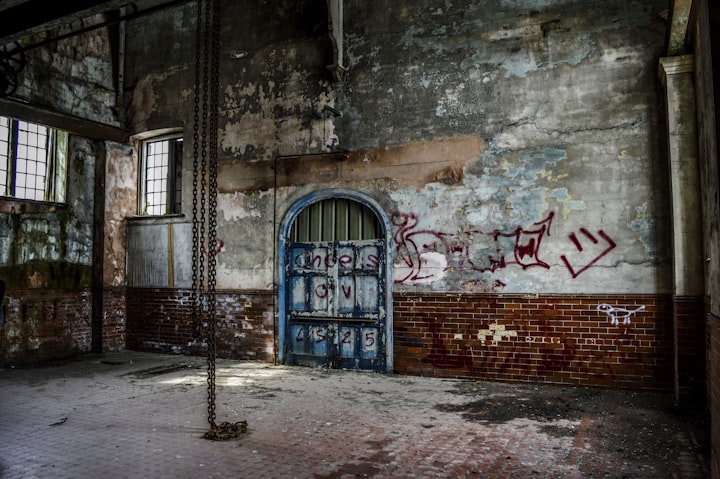That’s Not My Job: The Myth of Remote Work’s Role in the Urban Central Business District Apocalypse
Some argue that the work-from-home trend is single-handedly destroying downtown business districts in major urban centers — but are there deeper systemic economic issues that have long plagued city economies?

The rise of remote work has been accompanied by a flurry of opinions and speculation, with some arguing that the work-from-home trend is single-handedly destroying downtown business districts in major urban centers. However, these claims fail to acknowledge the deeper systemic issues within capitalism and the history of urban control that have long plagued city economies.
In this article, we will dissect the myth of remote workers as the sole cause of economic decline in downtown business districts, while shedding light on the true culprits of these issues and exploring the potential of remote work as a catalyst for change.
Remote Work: Exposing the Fragile Foundations
It is important to recognize that remote work has indeed impacted urban centers, with changes in demand for office spaces and altered consumer spending patterns. However, to pin the blame solely on remote workers is a gross oversimplification that ignores the pre-existing vulnerabilities and inefficiencies within the capitalist system. The real issues, as we will discuss, lie in the exploitation of small businesses, the overreliance on commercial real estate, and tax revenue imbalances.
The capitalist system has an insidious way of lulling us into a sense of complacency, making us believe that everything is fine — until it isn’t. Remote work has inadvertently exposed the cracks in the system, the fragile foundations on which our downtown business districts were built. While it’s tempting to point fingers at remote workers, doing so merely distracts us from the real challenges that we must confront.
Some critics argue that remote work is depriving cities of essential revenue and driving businesses to close their doors. While it is true that remote work has shifted consumer spending patterns and reduced demand for office space, these changes offer an opportunity to break free from the exploitative dynamics of capitalism and to embrace more equitable and sustainable models of urban development.
By clinging to outdated models of urban development, we are only prolonging the inevitable collapse of a system that has long been unsustainable. Instead, we should seize this moment of crisis as an opportunity to reimagine our cities, to build a future that prioritizes the well-being of people over the profits of corporations.
Exploitation of Small Businesses
Long before remote work became widespread, small businesses in downtown business districts faced exorbitant rents, fierce competition from large corporations, and limited access to credit. The capitalist system has historically favored big businesses, creating a monopolization of resources and market share at the expense of smaller enterprises. Remote work has merely accelerated the exposure of these inherent vulnerabilities.
The exploitation of small businesses is nothing new. In downtown business districts across the country, family-owned shops and local restaurants have long struggled to survive, fighting against the tidal wave of corporate interests that threaten to wash them away. The capitalist machine, driven by the pursuit of profit above all else, has left countless small businesses in its wake, their dreams crushed beneath the weight of insurmountable odds.
And yet, the narrative persists that remote workers are somehow responsible for the decline of these small businesses. This argument ignores the fact that the odds were already stacked against them in a system that values corporate profits over human lives. The reality is that remote work has simply revealed the festering wound that has long been hidden beneath the surface.
Reliance on Commercial Real Estate
The decrease in demand for office spaces caused by remote work has led to increased vacancies and declining property values in some areas. However, the crux of the issue lies in the overreliance on commercial real estate as a primary driver of urban economies. This dependency is a result of the parasitic dynamic of capitalism, which has pushed cities to prioritize the interests of developers and property owners, often to the detriment of affordable housing and community-oriented spaces.
The obsession with commercial real estate is a symptom of a deeper sickness within our capitalist system. We’ve been conditioned to believe that the only way for cities to thrive is to build more offices, more skyscrapers, more monuments to corporate power. As a result, our cities have become playgrounds for the wealthy, with little regard for the needs of the people who call these urban centers home.
In the pursuit of profits, developers and property owners have pushed out local residents, replacing affordable housing with luxury condominiums and high-priced office spaces. The fabric of our communities has been torn apart, leaving behind a sterile landscape dominated by glass and steel. And now, as remote work challenges the demand for office spaces, we are left to grapple with the consequences of our overreliance on commercial real estate.
Tax Revenue Imbalance
The changing landscape of tax revenue in urban centers is a reflection of long-standing imbalances in taxation policies that prioritize the interests of large corporations and wealthy individuals. Consequently, cities have become increasingly reliant on unsustainable revenue streams, such as property taxes from commercial real estate. The rise of remote work has highlighted the fragility of this model.
It’s no secret that our taxation system is broken. For decades, the rich have grown richer while the rest of us have been left to pick up the tab. In the name of “economic growth,” cities have granted tax breaks and incentives to large corporations and wealthy property owners, creating a massive imbalance in the distribution of resources. As a result, the burden of funding public services has fallen disproportionately on the shoulders of working-class residents.
Now, as remote work forces us to confront the unsustainability of this model, we must ask ourselves: How can we create a more equitable system that benefits all members of our society, not just the privileged few?
The Liberation of Office Workers
By freeing office workers from the constraints of physical office spaces, remote work has the potential to:
Promote Economic Equality
Remote work enables workers to access job opportunities beyond their immediate geographical locations, which can lead to a more equitable distribution of resources and opportunities, reducing income inequality and regional disparities. This newfound flexibility has the power to transform our society, empowering workers to seek out better opportunities and, in turn, driving economic growth in previously overlooked regions.
Encourage Sustainable Urban Development
As remote work gains popularity, cities can shift their focus away from commercial real estate and towards more sustainable development models, such as affordable housing, green spaces, and community-oriented facilities. By reorienting our priorities, we can begin to rebuild our cities in a way that fosters a sense of community and connection, rather than alienation and isolation.
Foster Innovation and Resilience
By embracing remote work and the changes it brings, cities can become more adaptable and resilient in the face of economic challenges. Reducing reliance on traditional economic drivers, such as commercial real estate, allows cities to foster innovation and explore new models for generating revenue and promoting economic growth. In a world that is constantly changing, adaptability and innovation are key to survival. By embracing the potential of remote work, we can create more dynamic and resilient urban centers that are better equipped to withstand the challenges of the future.
Blaming remote workers for the economic collapse of downtown business districts in major urban centers is both inaccurate and misleading. The true culprits lie within the exploitative nature of capitalism and the ways in which cities have historically prioritized the interests of corporations and property owners over those of residents and small businesses.
Rather than scapegoating remote workers, we should seize this opportunity to address the underlying problems and work towards building more equitable, sustainable, and resilient urban economies. Remote work has the potential to be a powerful catalyst for change, but only if we are willing to challenge the status quo and rethink our approach to urban development.
Through this scathing and poignant examination of the myth surrounding the remote work “apocalypse,” we hope to have demonstrated the necessity of shifting our focus from placing blame on remote workers to addressing the systemic issues that plague our cities. The future of our urban centers depends on our willingness to embrace change and to confront the true villains: capitalism and urban control.
About the Creator
Reader insights
Outstanding
Excellent work. Looking forward to reading more!
Top insights
Compelling and original writing
Creative use of language & vocab
Easy to read and follow
Well-structured & engaging content
Excellent storytelling
Original narrative & well developed characters
Expert insights and opinions
Arguments were carefully researched and presented
Eye opening
Niche topic & fresh perspectives
Heartfelt and relatable
The story invoked strong personal emotions
Masterful proofreading
Zero grammar & spelling mistakes
On-point and relevant
Writing reflected the title & theme






Comments
There are no comments for this story
Be the first to respond and start the conversation.